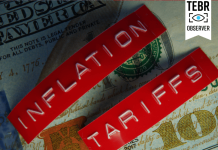By Emil Bjerg, journalist and editor
Before Trump has even appointed his full cabinet, one nominee has already withdrawn. Here, we portray the most significant members of Trump 2.0’s controversial inner circle.
Just eight days after being nominated to serve as Attorney General, Matt Gaetz withdrew under massive pressure. Gaetz was a controversial pick, facing an ongoing investigation regarding allegations of sexual misconduct and possible drug use. Other cabinet candidates could follow Gaetz’s trajectory, as all have yet to go through the vetting process in the Senate, scheduled for early 2025.
With most of his cabinet selections made, Trump’s picks have sparked controversy for various reasons. Let’s take a closer look at the most significant members of Trump 2.0’s inner circle.
J. D. Vance
Role: Vice President
J.D. Vance, born on August 4, 1984, in Middletown, Ohio, is a Republican U.S. Senator and has been selected as Donald Trump’s vice-presidential running mate for the 2024 election. A Marine Corps veteran and Yale Law School graduate, Vance gained national recognition with his bestselling memoir, Hillbilly Elegy, which explores the struggles of working-class Americans. Initially a critic of Trump, he transformed into a supporter, securing Trump’s endorsement for his Senate campaign in 2021. His strong advocacy for Trump’s policies, combined with substantial financial backing from influential figures like Peter Thiel, has solidified his position within the party and made him a strategic choice for the vice presidency.
Elon Musk
Role: Influential Adviser and Co-Head of the Department of Government Efficiency
As the world’s richest man and CEO of six companies, including Tesla, SpaceX, and X (formerly Twitter), Elon Musk has – controversially – leveraged his vast resources and social media influence to support Trump’s 2024 election. And his gambit paid off: Musk is believed to have added. Musk has been a resident at Trump’s Mar-a-Lago ever since the election win and has been appointed as co-head of the Department of Government Efficiency (in short, DOGE, like the cryptocurrency Musk is involved with).
Analysts believe Musk will play a significant role in the new administration, particularly on initiatives that align with his business interests, such as public contracts and technological reforms. Here, Musk will likely approach government administration as he approaches business and engineering: rather cut off too many, than two few parts.
Vivek Ramaswamy
Role: Co-Head of the Department of Government Efficiency
Ramaswamy, a 39-year-old Indian-American entrepreneur and former presidential candidate, has been appointed co-head of Trump’s Department of Government Efficiency alongside Musk. Known for founding the biotech company Roivant Sciences and the politically conservative investment firm Strive Asset Management, Ramaswamy gained prominence during the 2024 Republican primaries with his anti-establishment views. A Harvard and Yale Law graduate, he advocates for reducing government size and combating “woke” culture.
With Ramaswamy and Musk chosen for non-cabinet roles, they are able to continue their CEO jobs alongside their roles in Trump’s new administration.
Scott Bessent
Role: Secretary of the Treasury
Scott Bessent has been nominated to serve as the Secretary of the Treasury. A hedge fund manager and founder of Key Square Group, Bessent is known for advocating deficit reduction, deregulation, and the extension of Trump-era tax cuts. During the campaign, Bessent promised voters a “new golden age with de-regulation, low-cost energy, [and] low taxes”. If confirmed, Bessent would make history as the first openly gay Treasury Secretary in a Republican administration.
Marco Rubio
Role: Secretary of State
Rubio, a neoconservative Republican, is known for his hardline foreign policy views, particularly regarding China and Iran. He has served on both the Senate Foreign Relations and Intelligence Committees, advocating for a firm U.S. response to global threats.. His ideology emphasizes a strong national defense, support for Israel, and a confrontational stance against authoritarian regimes. This alignment with Trump’s “America First” agenda marks a significant change in his political stance since their rivalry during the 2016 presidential primaries.
Pete Hegseth
Role: Secretary of Defense
Trump has picked Pete Hegseth, a Fox News host and Army veteran, as his Secretary of Defense. The choice has raised eyebrows because Hegseth has limited political experience. Hegseth is known for his strong conservative views and advocacy for military privatization. His appointment signals a shift towards a more aggressive military posture and a focus on eliminating perceived “wokeness” within the Pentagon.
Robert F. Kennedy Jr.
Role: Secretary of Health and Human Services
Robert F. Kennedy Jr., often referred to as RFK Jr., has been appointed as the Secretary of Health and Human Services. This nomination follows Kennedy’s endorsement of Trump after he suspended his independent presidential campaign, aligning himself with the administration’s vision for public health reform.
Kennedy, a former environmental attorney, is known for his controversial views on vaccination safety, which have raised significant concerns among public health officials. He advocates for transparency in health policies and has criticized the influence of pharmaceutical companies on public health. However, his nomination has sparked mixed reactions, with some praising his commitment to health issues while others express alarm over his previous statements and misinformation regarding vaccines.
Tom Homan
Role: Border Czar
Former ICE Director Tom Homan has been appointed as a so-called “border czar,” responsible for overseeing border security and enforcement measures. His role aligns closely with Trump’s emphasis on strict immigration control and is expected to focus on implementing aggressive deportation measures.
After being nominated by the president, Trump’s cabinet picks must be confirmed by the Senate through a process that includes hearings and votes. This confirmation process typically takes place shortly after the presidential election, with votes usually occurring before or soon after the inauguration on January 20, 2025.




































